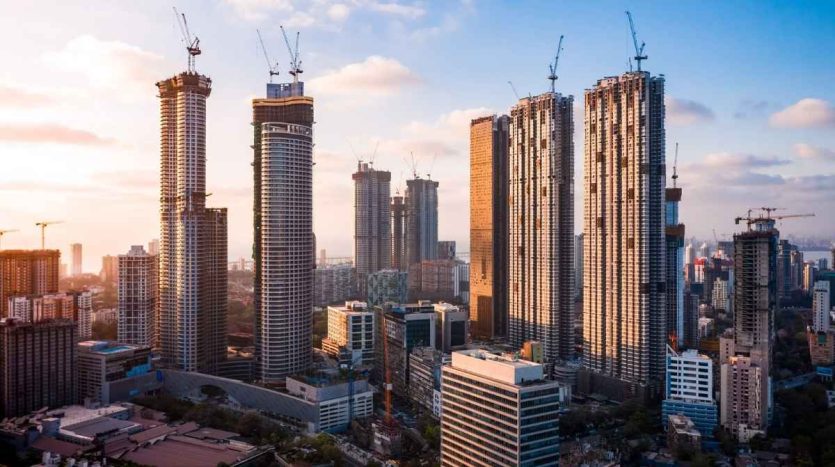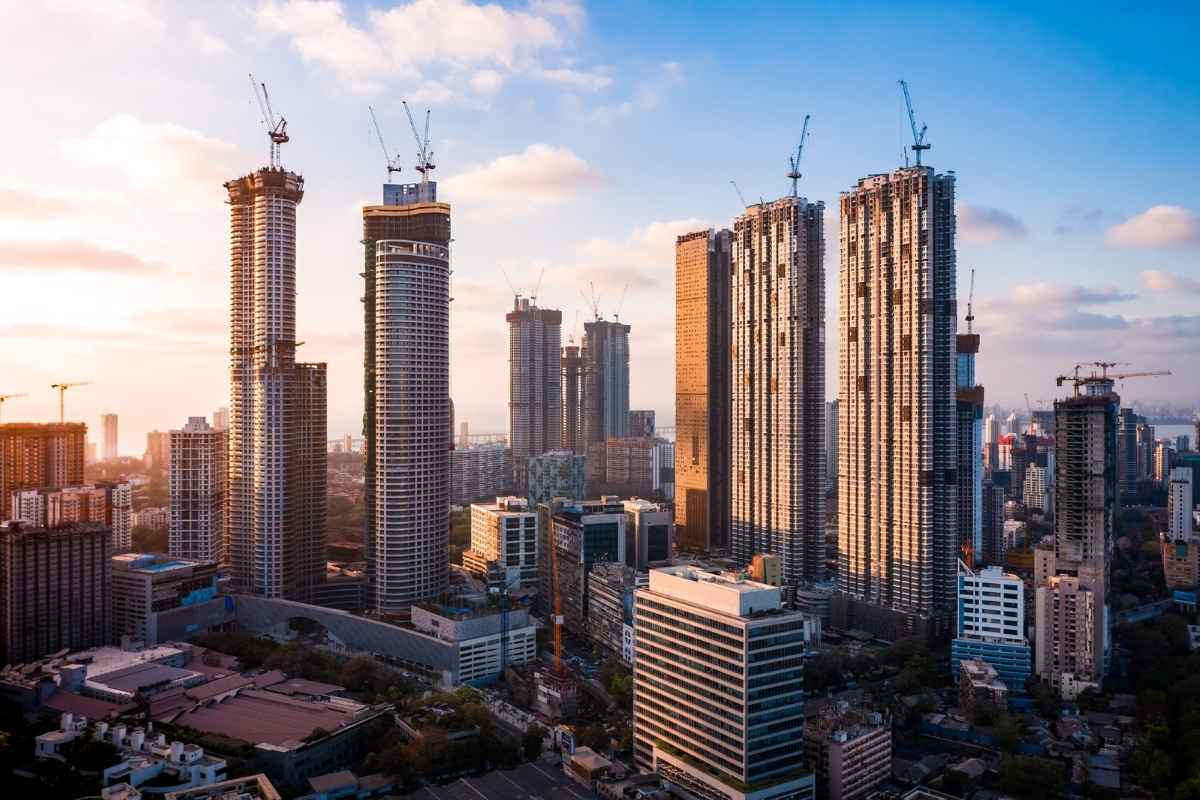Real Estate Investment in India: Risks, Rewards & Best Practices
Introduction
Thinking about putting your money into property, but unsure where to begin. You’re not alone. Real estate investment in India is one of the most popular ways to build long-term wealth, yet it comes with its own set of risks and rewards. From choosing the right location to avoiding costly mistakes, there’s a lot more to successful investment than just buying property. In this blog, we’ll take you through the highs and lows of India’s dynamic real estate market, and share practical tips to help you invest smart. Ready to make confident decisions. Let’s dive in.
Types of Real Estate Investment
When people think of real estate investment in India, they often picture buying a house or apartment. But the real estate market is much more diverse and offers a wide range of opportunities for all kinds of investors, from first-timers to seasoned professionals.
With India’s urban landscape expanding rapidly and more cities being developed under smart city missions, the scope of real estate investment is broader than ever. Whether you’re looking for steady rental income, long-term capital growth, or portfolio diversification, there’s a property type that suits your goals.
Let’s break down the main types of real estate investment in India, along with their pros, cons, and who they’re best suited for.
Residential Real Estate Investment
This is the most common and widely understood form of investment in real estate. It includes:
- Apartments
- Independent houses
- Villas
- Plots for future construction
Why invest in residential real estate?
- Rising demand fueled by rapid urban shift and growing population
- Potential for steady rental income
- Appreciation over time in growing neighbourhoods
Best for: First-time investors, families, and long-term wealth builders
However, it’s important to choose the right location, as property values and rental yields vary significantly between cities and even within different parts of the same city.
Commercial Real Estate Investment
Commercial properties include:
- Office spaces
- Retail shops
- Warehouses
- Co-working units
This segment of real estate investment in India has grown in popularity, especially in business hubs like Mumbai, Bangalore, Hyderabad, and Gurugram.
Benefits of commercial real estate:
- Higher rental yields than residential properties
- Long-term lease agreements with corporate tenants
- Strong capital appreciation in prime locations
Best for: Experienced investors and those seeking high ROI with relatively higher capital
Keep in mind that commercial spaces usually require a larger initial investment and come with more complex legal and leasing terms.
Real Estate Investment Trusts (REITs)
REITs are a relatively new and promising way to invest in real estate without actually buying physical property. Imagine it as a mutual fund, but built around real estate.
How REITs work:
- They gather capital from many people and use it to acquire income-producing real estate.
- Investors earn returns through dividends and capital appreciation.
- India’s listed REIT options currently include Embassy Office Parks, Mindspace REIT, and Brookfield REIT.
Why REITs are appealing:
- Low entry point (as low as ₹500–₹1,000)
- High liquidity (since they’re traded on stock exchanges)
- Diversification across multiple commercial properties
Best for: Small investors, beginners, and those looking for passive income without property management
Industrial Real Estate
Industrial properties include:
- Factories
- Manufacturing units
- Logistics centers
- Cold storage warehouses
With the growth of e-commerce and the government’s push for “Make in India,” investment in industrial real estate is gaining momentum.
Advantages:
- Stable, long-term tenants
- High demand in the logistics and supply chain sectors
- Minimal maintenance requirements compared to retail or office properties
Best for: High-net-worth individuals and institutional investors
This category demands a solid understanding of industrial areas, regulatory guidelines, and supporting infrastructure.
Land or Plot Investment
Buying land is one of the oldest forms of real estate investment in India. It offers complete ownership and flexibility for future development.
Benefits of investing in land:
- Lower initial cost (especially in developing areas)
- High appreciation potential
- No depreciation
- Can be used for residential or commercial development later
Best for: Long-term investors and those planning custom construction projects
However, land deals come with their own set of challenges—like legal clearances, zoning regulations, and a lack of income generation unless developed.
Co-Living and Student Housing Investments
This is an emerging segment in Indian real estate investment that caters to millennials, working professionals, and students.
Why it’s growing:
- Rising demand for flexible, affordable urban housing
- Shared living spaces reduce costs and increase social interaction.
- Often managed by third-party operators, reducing owner involvement.
Best for: Young investors looking for entry into the rental income market
Co-living properties typically offer faster occupancy and rental income, especially in cities with large student or migrant populations.
How to Select the Real Estate Investment Type That Suits You
With so many options, it’s important to match the type of property to your goals, risk tolerance, and budget.
Consider these factors:
- Budget: How much are you ready to invest?
- Risk appetite: Do you feel confident handling higher initial costs and a longer ownership timeline
- Investment goal: Are you looking for quick returns, long-term gains, or passive income?
- Time commitment: Do you want hands-on involvement, or prefer a hands-off investment like REITs?
India’s property market is not just about buying a house anymore. From residential flats to REITs, real estate investment in India offers a range of choices suited to every budget and experience level. Each type of real estate investment has its own rewards and risks, but with the right research and planning, you can find an option that aligns perfectly with your financial goals.
Major Risks Involved in Real Estate Investment in India
Real estate investment in India has long been considered a safe and rewarding avenue for building long-term wealth. Whether it’s a residential flat, a commercial shop, or a plot of land, property ownership is seen as a symbol of stability and financial growth. However, like any form of investment, real estate comes with its share of risks, some visible, some hidden.
If you’re planning to enter the property market, understanding these risks is just as important as knowing the rewards. In this blog, we’ll explore the major risks involved in real estate investment in India so you can make smarter, safer decisions.
Market Volatility and Price Fluctuations
Real estate, like any other asset class, is subject to market forces. Property prices can fluctuate due to factors like economic downturns, oversupply, or changes in demand.
Common causes of market volatility:
- Slower economic growth is affecting buyer confidence.
- Sudden changes in interest rates or loan policies
- Oversupply in certain areas, especially in new townships
- Migration trends impacting demand in Tier 1 and Tier 2 cities
While property typically appreciates over time, short-term dips can affect your returns, especially if you’re planning a quick exit. So, if you treat real estate as a short-term investment, be prepared for unpredictability.
Liquidity Challenges
One of the biggest downsides of real estate investment in India is low liquidity. Unlike stocks or mutual funds, you can’t sell property instantly when you need cash.
Why liquidity is a concern:
- Selling a property may take weeks or even months.
- Finding the right buyer at the right price can be difficult.
- Distressed sales often fetch lower prices than market value.
This lack of liquidity makes real estate better suited for long-term investors rather than those looking for quick returns.
Legal and Regulatory Risks
The legal process involved in buying or selling real estate in India can be complex and sometimes risky. Without proper due diligence, you may end up with disputed or illegally constructed property.
Common legal pitfalls include:
- Disputed property titles or unclear ownership
- Lack of approvals from local authorities
- Non-compliance with zoning or land use laws
- Fraudulent builders or brokers
Although regulations like RERA (Real Estate Regulatory Authority) have improved transparency, legal challenges persist. Always verify documents, consult a property lawyer, and ensure that the property is registered under RERA before making any investment.
Construction and Project Delays
Investing in under-construction properties often comes with the promise of lower prices and flexible payment plans. But delays in project completion are a significant risk in real estate investment in India.
Reasons for delays:
- Financial issues faced by the builder
- Pending government approvals
- Legal disputes or land acquisition challenges
- Construction halts due to environmental or regulatory violations.
Delays not only affect your timeline but can also lead to additional costs like EMIs on home loans, rent, and maintenance, without even owning the finished home yet.
Overdependence on Location
The location of your property can make or break your real estate investment. A great property in a poor location may not fetch good returns, while a modest home in a high-growth area can be a goldmine.
Location-related risks include:
- Poor infrastructure or lack of connectivity
- Low demand in the area affects resale value
- Safety, pollution, and water availability issues
- Delayed or cancelled infrastructure projects nearby
Before investing, research the area’s development plans, accessibility, and demand patterns to avoid location-based losses.
High Transaction and Maintenance Costs
Buying property in India comes with several additional expenses that can significantly affect your total investment.
Common hidden or additional costs:
- Stamp duty and registration fees (5–8% of the property value)
- Brokerage charges and legal fees
- GST on under-construction properties
- Maintenance charges, property taxes, and repair costs
These can eat into your expected returns, especially if you’re not prepared for them upfront.
Rental Income Uncertainty
Many investors rely on rental income to make their real estate investment viable. However, finding reliable tenants and maintaining consistent occupancy can be a challenge.
Rental risks you should know:
- Delayed rent payments or tenant disputes
- Long vacancy periods between tenants
- Rent control regulations limiting annual increases
- Unexpected maintenance or repair costs
It’s important to factor in rental yield when assessing a property’s earning potential, but also prepare for lean periods.
Economic and Policy Changes
Macroeconomic changes and government policies can influence the entire real estate sector.
Examples of such changes:
- Sudden demonetization and its impact on property sales
- GST implementation is affecting the under-construction project costs
- Change in foreign direct investment (FDI) regulations
- Interest rate hikes by the RBI
Staying updated on policy changes helps you plan your real estate investment in India more effectively.
Best Practices for Successful Real Estate Investment in India
Real estate investment in India is one of the most popular ways to build wealth, generate passive income, and secure a financially stable future. From first-time buyers looking for their dream home to seasoned investors building property portfolios, the opportunities are vast and diverse.
But while real estate can be highly rewarding, it’s not without its challenges. Poor planning, lack of research, or hasty decisions can turn a promising deal into a costly mistake.
In this guide, we’ll walk you through best practices for successful real estate investment in India, helping you make smart, confident, and profitable choices.
Set Clear Investment Goals
Before diving into the market, define what you want from your investment. Are you looking for:
- Long-term capital appreciation?
- Monthly rental income?
- A property to flip for short-term gain?
- A second home for future use?
Setting clear goals ensures that your investment strategy aligns with your financial needs, risk appetite, and timeline. It also helps narrow down the type of property and location that would suit you best.
Research the Market Thoroughly
Knowledge is your greatest asset in real estate investment. Before moving forward, make sure you clearly understand:
- Current property trends in your target city or region
- Upcoming infrastructure developments
- Local demand for rentals or resale
- Government policies and tax benefits
Use trusted real estate portals, news articles, and industry reports. Speak with brokers, developers, and even existing residents to get a real feel for the area.
Choose the Right Location
In real estate investment in India, location is everything. A well-located property can generate higher rental yields and appreciate significantly over time.
What to look for in a location:
- Nearby offices, educational institutes, healthcare facilities, and transit options
- Future infrastructure plans (metro, highways, IT parks, etc.)
- Safety, cleanliness, and community amenities
- Legal clarity on land use and zoning regulations
Avoid areas that look cheap upfront but lack demand or essential services. Always prioritise value over just low prices.
Budget Realistically and Plan Finances
One of the most common mistakes in real estate investment is underestimating costs.
Include in your budget:
- Down payment (usually 10–25% of property cost)
- Stamp duty and registration fees
- Brokerage and legal fees
- Loan processing and interest payments
- Maintenance charges and repairs
Get pre-approved for a home loan if you’re financing the purchase. Compare offers from different lenders and use EMI calculators to choose the most suitable terms for your purchase.
Verify Legal Documents and Approvals
Legal due diligence is a non-negotiable part of any real estate investment in India. Don’t take a seller or developer’s word at face value, verify everything independently.
Key documents to check:
- Title deed and chain of ownership
- RERA registration (for under-construction projects)
- Approved building plan and land use
- Occupancy certificate and completion certificate
- Encumbrance certificate (to ensure the property is free from debts)
Hiring a property lawyer may seem like an added expense, but it can save you from serious future headaches.
Choose Reputed Builders and Projects
For under-construction or newly launched projects, prioritise developers who have consistently delivered quality and timely work.
How to check a builder’s reputation:
- Look at their completed projects and delivery timelines.
- Read online reviews and ratings.
- Verify RERA compliance and registration.
- Talk to existing buyers or residents of their projects.
A reputable builder reduces your risk of project delays, poor construction quality, or legal disputes.
Understand the Tax Implications
Real estate investment in India offers multiple tax advantages along with important compliance responsibilities.
Know your tax basics:
- Tax deductions under Sections 80C and 24 for home loan principal and interest
- Capital gains tax when selling a property
- Income tax on rental earnings
- TDS if buying a property over ₹50 lakhs
Consult a tax advisor to ensure your investment is tax-efficient and compliant with current laws.
Focus on Long-Term Value, Not Just Immediate Gains
Unlike stocks or mutual funds, real estate is typically a long-term investment. Chasing short-term returns through flipping or speculative buying can be risky, especially in a fluctuating market.
Instead, focus on building long-term value through:
- Steady rental income
- Property appreciation over 5–10 years
- Reinvesting profits into better or multiple properties
Patience and consistency often pay off more than quick wins in real estate.
Keep Maintenance and Tenants in Check
Once you’ve invested, managing the property is key to maintaining its value.
Best practices for property management:
- Keep the home in good condition, and fix repairs quickly.
- Screen tenants carefully and have a proper rental agreement.
- Review rent prices annually based on market rates.
- Maintain good relations with tenants for better retention.
If you don’t live nearby, consider hiring a professional property management service.
Residential vs Commercial Real Estate: What Should You Choose?
When it comes to real estate investment in India, one of the biggest decisions you’ll face is whether to invest in residential or commercial property. Both offer unique advantages and risks, and the right choice largely depends on your financial goals, risk tolerance, and investment horizon.
In this blog, we’ll break down the key differences between residential and commercial real estate so you can make a confident, well-informed decision about where to put your money.
Understanding Residential Real Estate Investment
Residential real estate includes properties such as:
- Apartments and flats
- Independent houses and villas
- Plots for personal use or resale
- Co-living spaces or rental homes
This is the most common form of investment in India, especially for first-time buyers.
Pros of Residential Investment:
- Lower Entry Cost: Typically requires a smaller initial investment compared to commercial properties.
- Stable Demand: With India’s growing population and urban migration, the need for housing remains strong.
- Easy Financing Options: Home loans are accessible with attractive interest rates.
- Tax Benefits: You can claim deductions on home loan interest and principal under sections 24 and 80C.
Cons of Residential Investment:
- Lower rental yields (usually 2–4% annually).
- Tenants may change more frequently, leading to vacancy periods.
- Maintenance responsibilities lie with the owner.
Residential real estate investment in India is well-suited for investors looking for long-term capital appreciation, steady but modest rental income, and lower risk.
Understanding Commercial Real Estate Investment
Commercial real estate includes:
- Office spaces
- Retail shops
- Warehouses
- Industrial and logistic parks
- Co-working spaces
This type of real estate generally requires more capital but can deliver higher returns.
Pros of Commercial Investment:
- Higher Rental Yields: Typically 6–10% or more, depending on location and tenant type.
- Long-Term Leases: Commercial tenants often sign multi-year contracts, providing income stability.
- Lower Tenant Turnover: Corporate tenants are more reliable and easier to manage.
- Professional Management: Many commercial properties are handled by agencies, reducing owner involvement.
Cons of Commercial Investment:
- Higher entry costs and operational expenses.
- More affected by economic downturns (e.g., during remote work trends or business closures).
- Financing is more complex, with higher interest rates and stricter loan terms.
- Legal and regulatory frameworks are more involved.
Commercial real estate investment in India is ideal for experienced investors looking for high yields and are comfortable with bigger ticket sizes and higher risks.
Which One Should You Choose?
There’s no one-size-fits-all answer. Choosing between residential and commercial real estate investment in India depends on:
Your Budget
- If your capital is limited, residential properties are more accessible.
- Commercial spaces often require larger upfront investment and ongoing costs.
Your Investment Goals
- Want capital appreciation and potential for long-term growth? Residential may suit you better.
- Looking for higher monthly cash flow? A commercial may offer better rental returns.
Your Experience Level
- Beginners often find residential real estate easier to understand and manage.
- Commercial investment is better suited for investors with market knowledge and risk appetite.
Your Time Commitment
- Residential properties often need more hands-on management.
- Commercial real estate, especially through REITs, can be relatively hands-off.
The Rise of REITs: A Middle Ground
If you’re unsure about directly managing a commercial property, consider Real Estate Investment Trusts (REITs). These offer exposure to commercial real estate without the hassle of ownership or management.
Benefits of REITs:
- Low entry point (invest with as little as ₹500–₹1,000)
- Regular dividend income
- Liquidity (listed on stock exchanges)
- Professionally managed portfolios
For investors looking to diversify their real estate investment in India, REITs are an excellent option.
Tips for Choosing the Right Investment
- Do thorough market research before choosing a location or property type.
- Understand your cash flow needs and how the property fits into your financial plan.
- Start small, especially if you’re new to real estate.
- Keep an eye on future growth trends, infrastructure, job markets, and demand.
- Consult professionals, including financial advisors and legal experts, to avoid costly mistakes.
Both residential and commercial properties offer excellent opportunities in real estate investment in India, each with its own set of benefits and challenges.
Conclusion
Stepping into the world of property can be exciting, but knowing what lies ahead makes all the difference. Whether you’re drawn to long-term gains or steady rental income, real estate investment in India offers a wealth of opportunities, along with a few challenges to watch out for. In this blog, we explore the key risks, potential rewards, and smart practices that help turn property dreams into profitable realities. From market insights to simple tips, it’s your guide to navigating the Indian real estate landscape with confidence. Curious to learn what makes a good investment even better? Keep reading to find out. Have questions or need expert advice? Contact us today, we’re here to help you make smarter real estate decisions.
Frequently Asked Questions
Q1. Is real estate investment in India a good long-term option?
Ans. Yes, it offers long-term capital growth, rental income, and portfolio diversification if planned well.
Q2. What’s the difference between residential and commercial real estate investment?
Ans. Residential is lower-risk and easier to manage, while commercial offers higher returns but requires more capital.
Q3. Are REITs a safe way to start real estate investment in India?
Ans. Yes, REITs provide exposure to commercial real estate with low entry costs and high liquidity.
Q4. What risks should I be aware of before investing?
Ans. Market volatility, legal issues, project delays, and high costs are key risks to consider.









